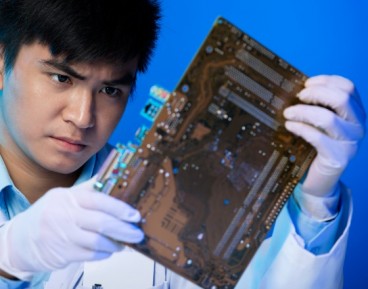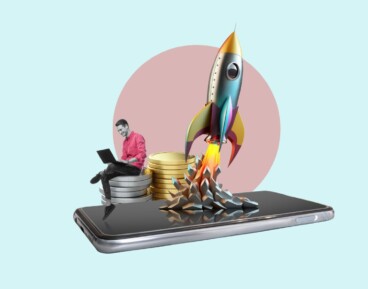German automotive industry at a crossroads
Kategoria: Business
One of the most important aspects of the response to the Putin’s invasion is the asymmetrical perception of risk. The US has been more aggressive in seeking sanctions, not just on the corrupt Yanukovych (former Ukrainian President), family members and some other corrupt Ukrainian politicians of the previous regime, to which Europe has agreed.
The US has announced sanctions not just against the people who stole from the Ukrainian people (18 individuals that had amassed a combine fortune of 87 bln euros, which is almost 50% of the country’s GDP), but also against those „responsible for or complicit in threatening the sovereignty and territorial integrity of Ukraine”. No names or numbers were specified of persons who would be affected via visa bans, including the nullification of existing visas.
It is not that the US is from Mars and Europe is from Venus, as some have suggested. Europe was more aggressive in Libya and Syria. Rather, Europe is more willing to grant Russia a sphere of influence. That balance of power politics will arguably lead to greater stability.
Last weekend, we warned that the market often exaggerates geopolitical developments. While this proved to be helpful in recent days, the lack of escalation does not mean de-escalation. In particular, Russia intends on re-absorbing Crimea and this will further antagonize Russia’s critics.
On March 16, Crimea will hold a referendum on whether to join Russia. This is bold and big, leaving aside historical ties and what Khrushchev did or did not do and whether he was sober. In fairness, the Crimean voters will have a choice between joining Russia or re-invoke the 1992 constitution, that recognized Crimean as an autonomous region within Ukraine.
Given the high level of passions, it is easily conceivable, without necessarily being too cynical, that Crimeans will vote to join Russia. Russia has not done that to the provinces in Georgia that it still occupies. The US, where the Obama’s critics want a stronger, more strident response and argue that Putin only respects strength and resolve, will likely view it as an escalation. Europe may see it more as a ratification of political realities; of what has already happened on the ground.
Of course, the legality of the referendum will be challenged by the Ukraine, Europe, the US and others. At the same time, the EU is pressing ahead with an Association Agreement with the Ukraine, which Yanukovych had rejected at the last minute. EC President Van Rompuy indicated that an agreement will be signed before the Ukranian election on May 25. This does not seem to be the most secure way to do this. Wouldn’t it be preferable to wait for a new elected government to make such a commitment? The EU indicated that a similar agreement for Georgia and Moldova will be ready later in Q3.
What a 19th century Mexican President said about his country is applicable to the Ukraine and Crimea and Russia: „Pity Mexico,” Porfirio Diaz allegedly said,” so far from God and so close to the US. Being a small or weak country close to a large and strong country has certain disadvantages. It is not fair. Ideally, the rule of law helps mitigate the situation.
Europe, perhaps, more than America, appreciate that there is an element of hypocrisy that comes with politics in general and international politics in particular. It is as if the rule of law is often seen not as a promise of how one will behave, but limits on how the Other should behave. When a government in a small Caribbean island was toppled, and a Communist-type regime was going to replace it, US President Reagan ordered a quick invasion. Operation Urgent Fury took place in 1983 and restored the constitutional government of Grenada. The Organization of American States did request the US involvement in response to the US request, similar in spirit, if not in fact, to what Putin did.
Putin has positioned Russia as the status quo power and the US and Europe as the revisionists. He used the overthrow of a democratically elected, but corrupt, president as a pretext for his military actions. Putin’s behavior show that the ultimate source of tension is not between communism and capitalism as was claimed for most of the twentieth century. Rather the tension is as old as the city-state wars in ancient China, Greece, and Rome: Competing views of self-interest. The Soviet Union invaded Hungary and Czechoslovakia during an era in which could not have been called a G-Zero world.
Russia has Crimea and it did before the military action. It will likely effectively annex it. What about the rest of Ukraine? The US and Europe want to solidify its economic integration. Putin does not have the appetite to take it by force. It would be potentially worse than Afghanistan was for it. Putin seems content to allow the US and Europe deal with the highly indebted and corrupt country. Some of the assistance that US and Europe will provide will find its way into the Russia’s coffers, and indirectly pay for the Russian occupation of Crimea. In the great marathon of Eurasian geopolitics, Russia will have other opportunities to woo, or at least neutralize, Ukraine.
Russia and the US have been rivals for more than 100 years. The rivalry pre-dates communism and has survived its fall. Obama has tried to the famous pivot to Asia, but without trade-promotion authority, which his own party will deny him, the Trans-Pacific Partnership is all but dead. Putin’s Crimea play is a warning the peace on the Continent is still not secured.


